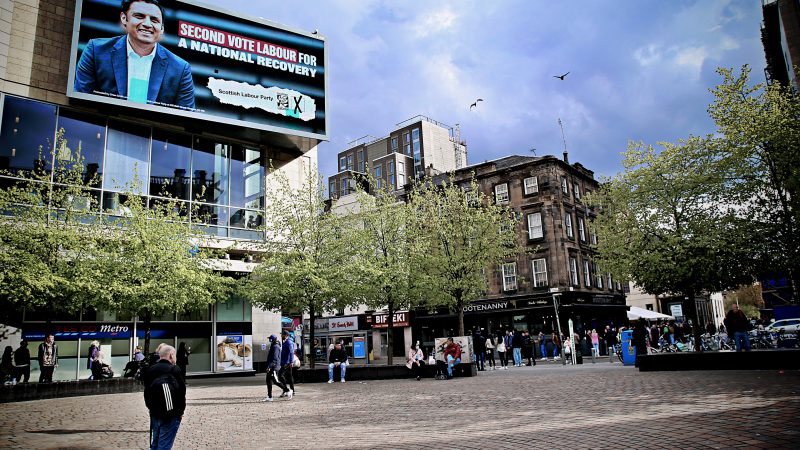
Labour started off in 1999 with every constituency seat in Glasgow, and it stayed that way until 2007, when Nicola Sturgeon won Southside. Then came the 2011 SNP landslide, which saw five of the nine constituencies turn yellow, before every single one did the same in 2016. Scottish Labour must now rely on the regional list to be represented in the city. In the meantime, after decades of running the council, Labour lost overall control in 2017 and it is now SNP-led. Much of the Labour activity I found on my visit to Glasgow was around opposition to decisions by the local authority, which is proposing a “stealth closure programme” – as termed by Labour activists – with 70 venues such as libraries and community centres not reopening.
Eva Murray, a local councillor standing to be MSP for the Glasgow Anniesland constituency, is fighting against the decision by Glasgow Life (the arms length company chaired by the council’s deputy leader) not to reopen Whiteinch Library. “Ultimately, it’s due to cuts to Glasgow City Council,” she tells me, explaining that the building has been open to the public since 1926 but is now under threat after just four years of SNP administration. Protesters are staging read-ins outside. “I’ve been joining local people to sit outside for an hour, read a book and send the message to SNP councillors who voted for this.” One poster attached to the railings features a quote from Albert Einstein on the importance of libraries alongside a quote from council leader Susan Aitken on the plans to keep Whiteinch shut.
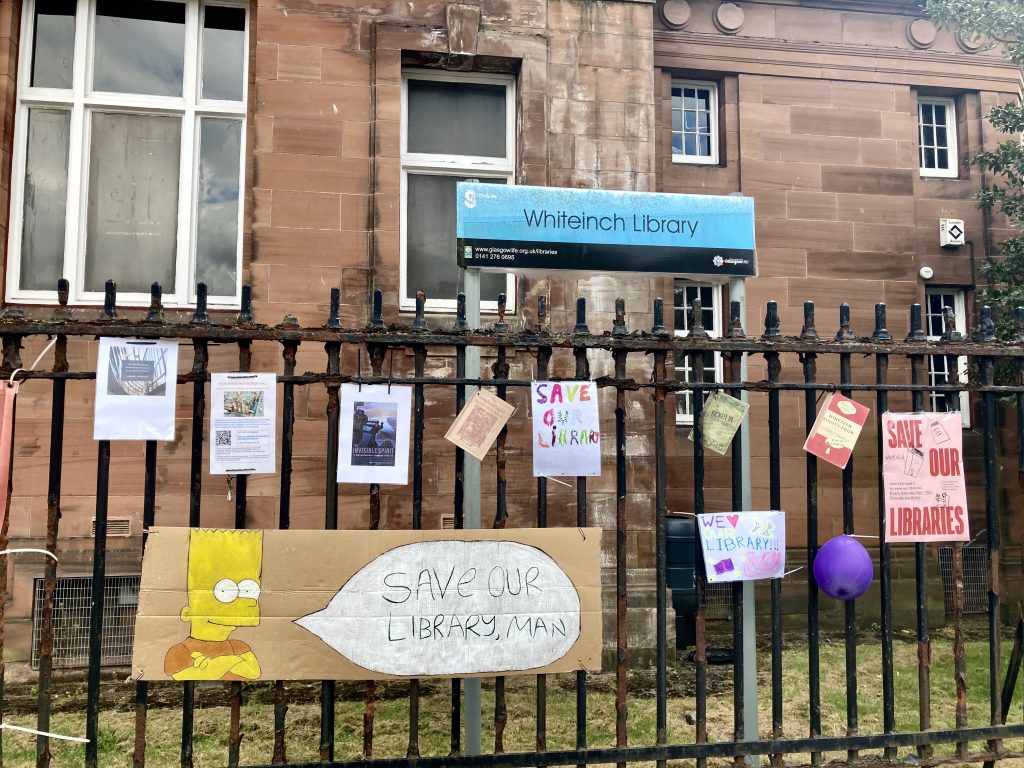
“People locally are just fed up with it,” Murray says. “They’re being very civil in it, they’re putting in FOIs, they’re doing it the proper way.” She adds: “We had a number of people speaking to us today saying they’ve voted SNP all their life, but they’re going to give me a chance and vote Labour on both the constituency and the list, which is incredible to hear. We weren’t actually campaigning down at the read-in, obviously. But people were coming up to us, saying ‘thanks so much for supporting us’ and ‘we’ll be giving you a shot’. So it’s steps like that, gaining people’s trust again – that’s what politics is all about for me. We have to get back to our grassroots, being involved in campaigns like this.”
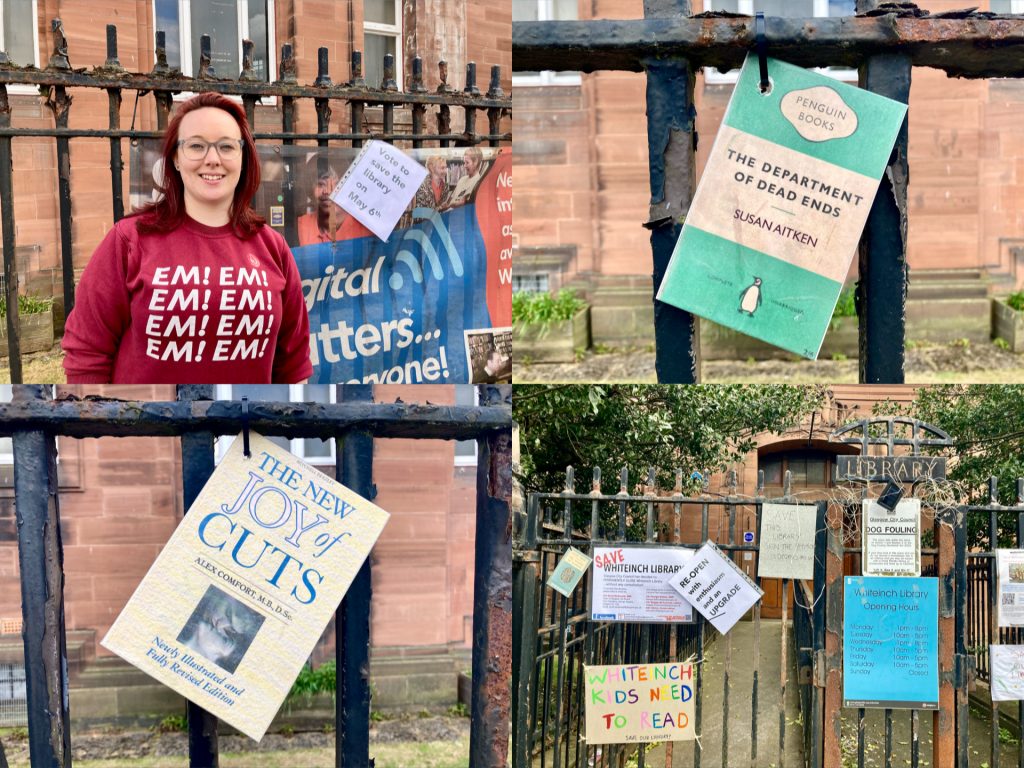
Keiran O’Neill, Labour’s candidate for Glasgow Maryhill and Springburn, is also drawing attention to local closures in his campaign. ‘Save Maryhill Library’ is emblazoned on his leaflet that we distribute while canvassing a smart estate in the North of the constituency, where the current SNP MSP Bob Doris lives. It is near the biggest Greggs I’ve ever seen. “I’ve been going to people who have been ‘against’ all week and some have changed back, people we lost in 2015,” O’Neill tells me. “There’s definitely a bit of change in the air. Anas is going down really well. Is it going to be enough? I don’t know.”
O’Neill is a highly motivated and energetic campaigner. The chances of Labour winning back this seat are not considered high, though: while it only turned SNP in 2016, it did so in a big way, with the new MSP winning 47.6% of votes compared to Labour’s 25.5%. “A real sense of positivity on the doors, but it’s a 5,000 SNP majority, which is pretty significant in Scottish parliament terms,” O’Neill says. Maryhill also had the highest ‘Yes’ vote in the city, he points out. “It’s certainly an interesting microcosm of Glasgow.” More optimistically, he reports that Anas Sarwar’s national recovery message is reflective of the public mood. “I have to say, a lot of people – even lifelong SNP voters – really don’t think now’s the time for another referendum.”
O’Neill tells me that in recent hustings Nicola Sturgeon and Douglas Ross were “acting like weans”, whereas Sarwar was recognising the scale of coronavirus deaths. The new leader is going down incredibly well on the doorstep, with people saying “I like Anas but I don’t know if I like Labour”. The candidate says: “We’ve doubled our share in constituency vote in a matter of months, and I know we were at a very low place, but… it does feel like there could be a few surprises on the day.” There is a lot of churn and more tactical voting, he adds. This makes the results less predictable.
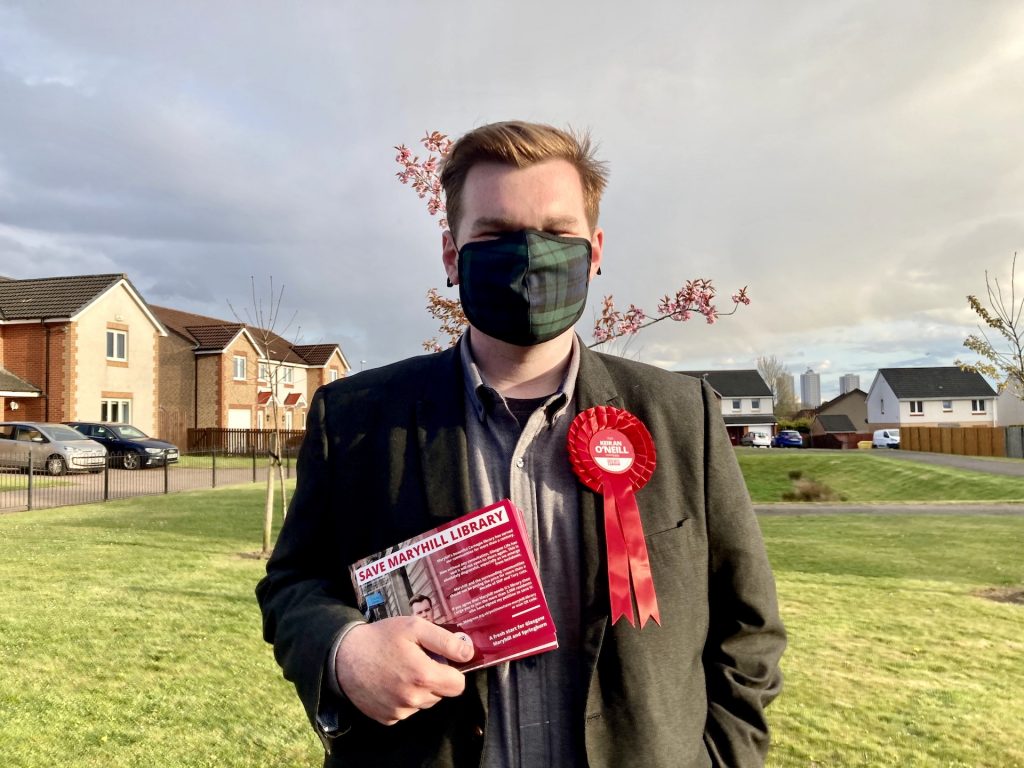
The electoral system used in the Holyrood elections complicates the picture somewhat. The three key Scottish Labour aims are to stop an SNP majority, become the largest opposition party and reverse the party’s trend of decline since devolution. “I really hope we can deliver all three, but because of the d’Hondt system, our vote could go up significantly, but we still lose seats just because of how it works,” O’Neill explains, before we meet a previously ‘against’ voter who is considering Labour. He is a hospital porter, but did not raise the SNP promise of a 4% pay rise for NHS Scotland staff. O’Neill think this is because “porters will probably be shafted through this deal”.
In Glasgow’s Pollok, I speak to another NHS worker: Labour constituency candidate Dr Zubir Ahmed, a surgeon. He grew up in Govanhill, south of the river Clyde, an area “synonymous with immigration”, he says. “It wasn’t an easy place to live in, especially as an Asian person.” He attributes much to his father, who has never taken a “proper holiday” and is still driving a black cab at 82. What came first, the politics or the medicine? “I always had an interest in politics. In some ways that came first, because politics defined a lot of things for us when we were young, dealing with the council and MPs when we were getting bricks through our windows and fireworks through our letterboxes for being Asian.”
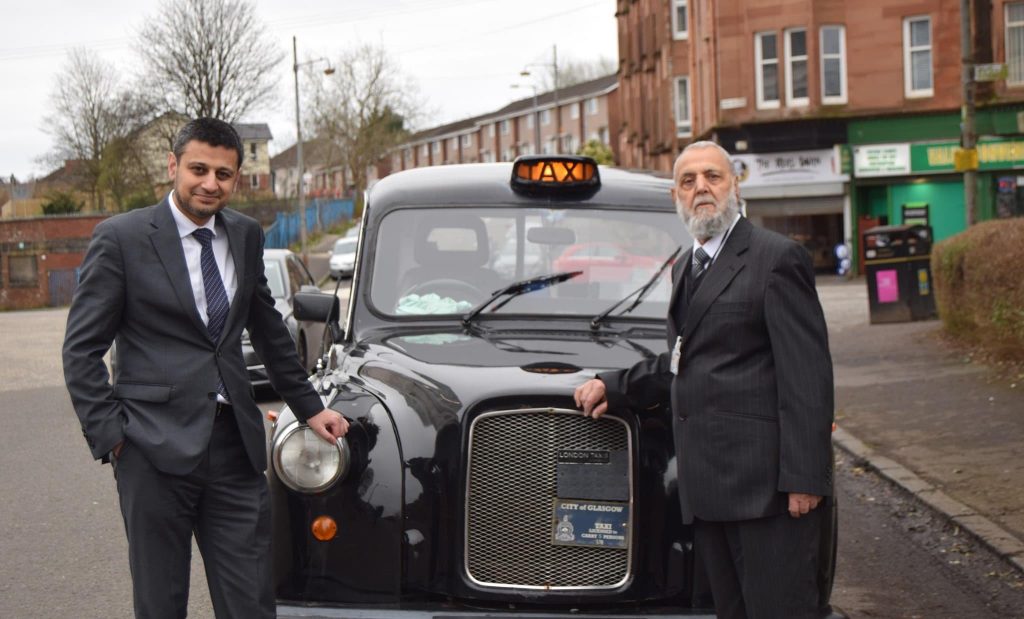
Explaining why, then, he became a doctor, Ahmed says he was “very cognizant of the fact people should do things that are vocational” and “I’ve always felt that the best politicians are probably the ones that have had some real life experience”. We discuss how he was drawn specifically to surgery, which of course has another meaning for political representatives. “I’m always interested in things that are practical, where you can use your hands, but also have a palpable sense of the outcome of your investment in your intervention.” It’s a bit like casework in that way, he agrees.
“To my mind, the skills, the motivation, the energy and the appetite that’s required to do my job in a medical clinic is not too dissimilar to an MP’s surgery. I think it comes down to wanting to be an advocate for someone and wanting to take ownership of the problem,” Ahmed concludes. His wife is a respiratory doctor so she has been more on the frontline during Covid, but the Labour candidate has faced “the aftermath”: the cancelled operations and the suspension of the transplant waiting list. “The tsunami of what’s to come, the trauma of what’s to come after Covid, I think will be even worse than Covid itself.”
He is a candidate with intimate knowledge of the need for Scottish Labour’s NHS recovery plan. “I’m very sensitive to the fact that when you talk about ‘when this pandemic is over, we’ll just have this little small referendum and that’ll be fine’, well, actually, the scars of this pandemic are not just the scars of the virus, the scars of the aftermath are deep,” he tells me. “We’re talking about five years.” Like Keiran O’Neill, Zubir Ahmed reckons voters agree that a referendum would take up valuable “political oxygen”. “I think we’re winning the argument, for sure. I certainly don’t think even the most fervent independence supporters would disagree.”
Whether that is enough for Labour to make gains is another question. Ahmed suggests the rebuilding process is most important, and it is clear he feels a deep responsibility as the party’s Pollok candidate, standing against the SNP’s Justice Secretary Humza Yousaf. “We shouldn’t just be here as a paper candidate. I think the candidates have been selected to go out there and bat for the party hard and strong, and as fast and as energetically as they can. That’s what I’ve tried to do. It doesn’t matter who you’re up against, even if you’re up against a minor celebrity of the SNP government,” he says.
“I think it’s even more important to show face, because up until very recently, these were our streets, they were our people who used to rely on us, and then we vacated the space. It was our fault when they turned away from us. And there still are people who need us to be visible and available to them. These campaigns are the first step in us gaining back legitimacy in their eyes, as a party of government, as a party for them that can deliver. And that isn’t done over one election cycle, or even a couple of years. But the fightback needs to start now.”




More from LabourList
Letters to the Editor – week ending 15th February 2026
‘Labour council candidates – it’s tough, but all is not lost’
‘Labour won’t stop the far right by changing leaders — only by proving what the left can deliver’